Ancient underwater caves and ecosystems in Mexico are being destroyed by a train
Ancient underwater caves and ecosystems in Mexico are being destroyed by a train
The cave system contains one of the biggest aquifers in Mexico and acts as the region’s main water source, crucial at a time when the nation faces a deepening water crisis.
Mexico’s outgoing leader has rapidly built a train system looping around the country’s southern Yucatan Peninsula.
President Andrés Manuel López Obrador promised the more than $30 billion Maya Train project would connect tourist hubs like Cancún and Playa del Carmen to dense jungle and remote archaeological sites, drawing money into long-neglected rural swathes of the country.
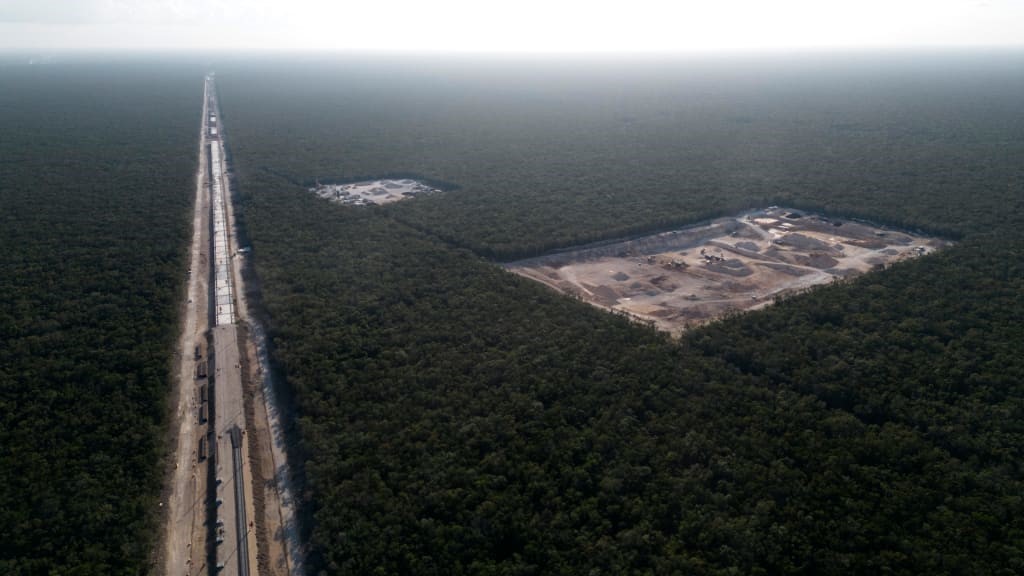
But the crown jewel of the populist’s presidency also runs over one of Mexico’s natural wonders: A fragile system of an estimated 10,000 subterranean caverns, rivers, lakes, and freshwater sinkholes.
As his term comes to an end, Associated Press journalists traveled along a section of that cave network, documenting its destruction.
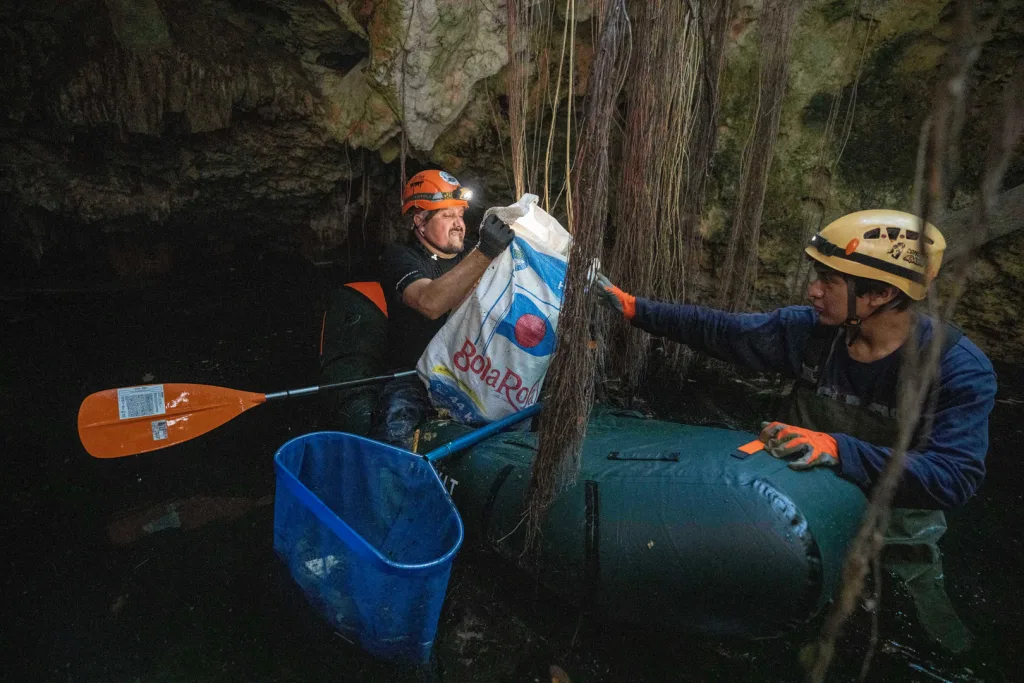
Built upon a “fragile” and important ecosystem
The cave system contains one of the biggest aquifers in Mexico and acts as the region’s main water source, crucial at a time when the nation faces a deepening water crisis.
The region was once a reef nestled beneath the Caribbean Sea, but changing sea levels pushed Mexico’s southern peninsula out of the ocean as a mass of limestone. Water sculpted the porous stone into caves over the course of millions of years.
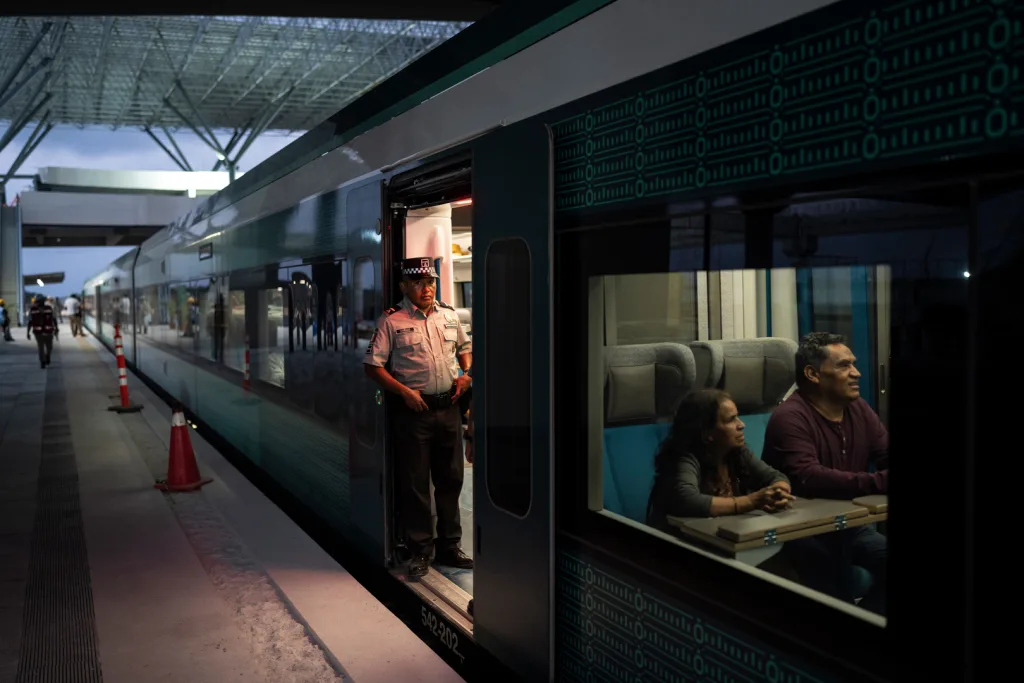
It produced the open-face freshwater caverns known as “cenotes” and underground rivers that are in equal parts awe-inspiring and delicate, explained Emiliano Monroy-Ríos, a geologist at Northwestern University studying the region.
“These ecosystems are very, very fragile,” Monroy-Ríos said. “They are building upon a land that is like gruyere cheese, full of caves and cavities of different sizes and at different depths.”
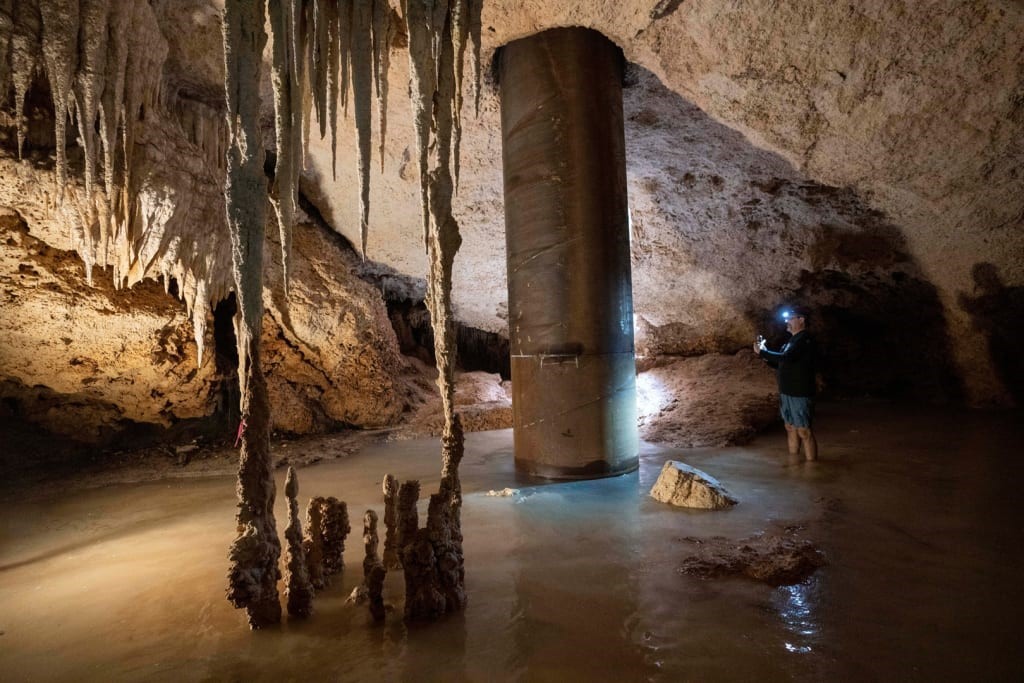
The destruction
The train has sparked criticism by environmentalists and scientists as its construction plowed down millions of trees, a chunk of the largest tropical forest in the Americas after the Amazon.
But the caves rose to the forefront in recent months when experts who have long worked in the caves posted videos of government workers using massive metal drills to bore into the limestone, embedding an estimated 15,000 steel pillars into the caverns.
The pillars were made to elevate the train line, something López Obrador said would protect the ancient underground world, already under threat by mass tourism.

Instead, what the AP documented was destruction.
Across the cave system, stalactites broken off by vibrations from train construction litter the ground like rubble following an earthquake. In other caverns, the concrete filling the pillars has spilled out to coat the limestone ground. Water showed traces of iron pollution by rust coming from the metal.
The destruction ripples out to the rest of the ecosystem, the AP found, as the fresh water aquifer connects to Caribbean Sea.
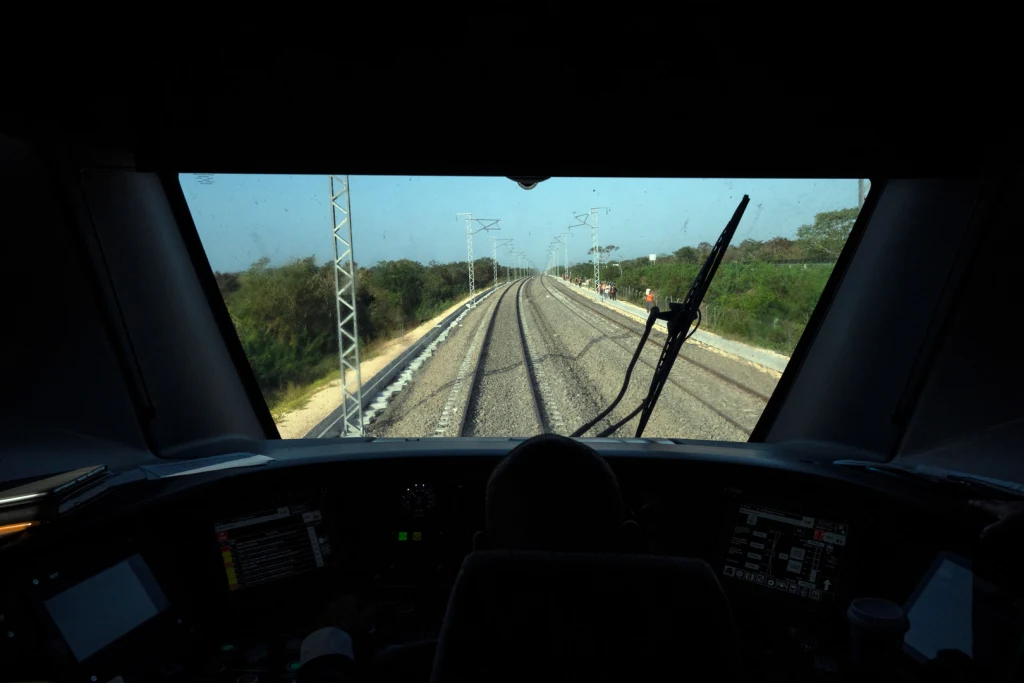
A political promise, but also a political process
López Obrador, who has portrayed himself as a champion of Mexico’s long-forgotten poor, has declared the train “our legacy of development for the southeast of Mexico.”
The populist has fast-tracked construction of the train to try to keep promises to complete it before June elections, something appears all but impossible.
The government has dodged oversight, ignored court orders, employed the Mexican military in its construction and blocked the release of information in the name of “natural security.” In a violation of Mexican law, the administration also didn’t carry out a comprehensive study to assess the potential environmental impacts before starting construction.
The moves he’s made have only deepened his ongoing clashes with the country’s judiciary, further fueling criticisms that his government is undermining democratic institutions.
—By Teresa De Miguel, Megan Janetsky, and Rodrigo Abd, Associated Press
Fast Company
(21)



